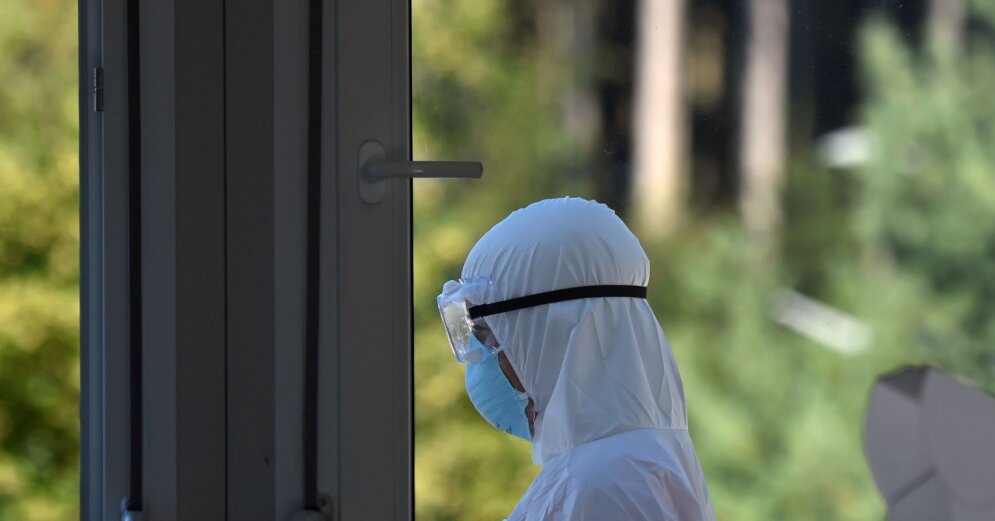Banks are considering extending telecommuting indefinitely and staggering arrival times at the office in New York, where hoteliers are testing the best formula that would allow customers to avoid the reception to reach their rooms.
We are slowly preparing for a resumption of activity in the megalopolis, economic, tourist and cultural lung in the United States, more than a month after the sudden shutdown of the economy due to the pandemic.
The majority of Citigroup employees currently telecommute, including Michael Corbat, the CEO. Like its rivals, the bank has recreated trading rooms at the homes of traders, even if some have been relocated to emergency sites previously disinfected. The establishment anticipates reluctance among some employees to return to the office in the absence of treatment or a vaccine against Covid-19, a disease caused by the new coronavirus. “We want to do our best to give them the choice to continue working remotely,” guarantees group number 2 Jane Fraser. Opinion surveys were sent to employees.
Finance accounts for 9.9% of private sector jobs in New York City, home to Wall Street and the headquarters of major US banks. It accounts for 29% of the city’s GDP, according to official figures.
In time
At JPMorgan Chase, one of the city’s big employers, the return to work will be somewhat modeled on the reopening of the economy in New York after the so-called “Spanish” flu of 1918. “We will not ask everyone to come back at the same time. Employees will return to the office in stages and in time, “writes the firm in an internal document, consulted by AFP. A decision applauded by Patrick Foye, the boss of the public transport operator MTA: “Having people who go to the office three days a week instead of five, this type of measure will obviously help with the problem of social density and distancing “.

New York is much more densely populated than any other American city, with 11,000 people per square kilometer. Epicenter of the pandemic in the United States, the city has gone through several crises, including the terrorist attacks of September 11, 2001 and the great recession of 2008, but the task has never been more daunting to restart it.
Trou fiscal
Containment measures to stem the spread of Covid-19 are expected to destroy 475,000 jobs until March 2021 and cause a $ 9.7 billion hole in the budget, according to the Budget Service (IBO). Andrew Cuomo, the governor of the state, announced that activity will resume by zones and gradually. No date or conditions have yet been put forward.
The city’s 25,000 restaurants, bars and nightclubs are wondering if they will be allowed to operate fully in a world marked by social distancing. “If you have to reopen with an occupancy rate reduced to 50%, it will not be financially viable for a lot of businesses,” said Andrew Rigie, the director of their New York City Hospitality Alliance lobby.
Especially since arrears of rents and bills have accumulated for many businesses, which also lack cash. Many small businesses have yet to get the promised federal aid, as banks have favored large corporations.
And there is an unknown: “We do not know how will react consumers”, insists Andrew Rigie, estimating that at least 25% of establishments would disappear.
Coogan’s, an Irish pub and restaurant opened in 1985 north of Manhattan where celebrities, politicians and locals meet, lowered the curtain on April 21. On Broadway, at the opera and in museums, we prepare for masked visitors and we begin to get used to the idea that we will have to arm ourselves with a lot of patience. It is also difficult to say whether tourists – 65 million in 2019 -, big buyers of “show” tickets, will return in large numbers.
–
All rights of reproduction and representation reserved.
© 2020 Agence France-Presse
All the information reproduced in this section (or on this page as the case may be) is protected by intellectual property rights held by AFP. Consequently, none of this information may be reproduced, modified, redistributed, translated, exploited commercially or reused in any way whatsoever without the prior written consent of AFP. AFP cannot be held responsible for delays, errors or omissions which cannot be excluded, nor for the consequences of actions or transactions carried out on the basis of this information.
.


/data/photo/2019/11/28/5ddffba5df241.jpg)